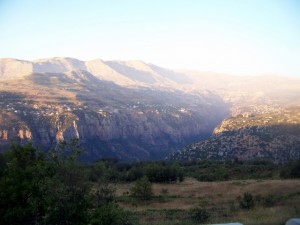The August 6, 2009 edition of Nature (available online only to subscribers) includes a fascinating letter by Ajit Varki, a Professor of Medicine and Cellular & Molecular Medicine at the University of California San Diego, La Jolla.
Varki begins his letter by recognizing some of the unique features of human animals, such as theory of mind, "which enables inter-subjectivity." These impressive human cognitive abilities might have been positively selected by evolution "because of their benefits to interpersonal communication, cooperative reading, language and other critical human activities."
Varki then describes his conversations with a geneticist named Danny Brower (now deceased), who was fascinated with the question of why theory of mind emerged only recently, despite millions of years of apparent opportunity. Brower offered Varki a tantalizing explanation for this delay:
[Brower] explained that with the full self-awareness and inter-subjectivity would also come awareness of death and mortality. Thus, far from being useful, the resulting overwhelming fear would be a dead end evolutionary barrier, curbing activities and cognitive functions necessary for survival and reproductive fitness. . . . in his view, the only way these properties could become positively selected was if they emerged simultaneously with neural mechanisms for denying mortality.
In other words, self-awareness is a double-edged sword that tends to kill off (through terror-induced paralysis) those who become too readily self-aware. Therefore, self-awareness evolved together with denial of death--Brower was suggesting that those who became too clearly self-aware would become incapacitated by something of which chimpanzees, dolphins and elephants remain blissfully ignorant: the fact that they will inevitably die.

Varki suggests that Brower's idea would not only add to ongoing discussions of the origins of human uniqueness, but it could shed light on many puzzling aspects of human psychology and culture:
[I]t could also steer discussions of other uniquely human "universals," such as the ability to hold false beliefs, existential context, theories of afterlife, religiosity, severity of grieving, importance of death rituals, risk-taking behavior, panic attacks, suicide and martyrdom.
Perhaps we are simply incapable of viewing life "objectively," in that evolution has rigged us up with equipment that protects us by deluding us. It seems, then, that the co-evolution of delusion and awareness (if this is the case) dovetails quite well with
Terror Management Theory (TMT), which I summarized in a post entitled "
We are gods with anuses: another look at “terror management theory”:
The problem is that the evolution of our powerful ability to be conscious made us aware that we are mortal beings and that all of us are heading toward inevitable death. The “solution” is also offered by our highly developed cognitive abilities: we have developed the ability to wall off our cognitively toxic fear of death by “objectifying” our existences and living idealized lives free from fear of death.
Brower and Varki thus suggest that the ability of humans to be extraordinarily aware and curious is too dangerous to be dispensed by evolution in its pure form. Too much knowledge can might be too dangerous. To safely allow the continuation of the species, human awareness might need to be deluded and distorted in ways that account for some of the most baffling "cultural" aspects of what it means to be human.

This approach sounds promising to me, though it also raises many other questions, such as this one: Why are
some of us apparently immune from these delusions? Why are some of us much more able to disbelieve claims of gods and afterlives?




